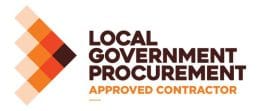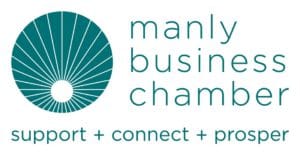Tag Archive for: #leader
So many jobs, so many companies, sooo many choices! Being a newbie in the job market can be a daunting experience. Where do you start when you’ve never had to navigate job applications, interviews and assessments before? Right here! Our recruitment experts have put together five top tips to help you find and land your first job.
Start with You
Take a look at yourself. What are your core strengths? What are your preferred work environments? What would you like to be doing in five years’ time? Before you get your job search underway, decide what type of role you would like to aim for and why. If you’re unsure, chatting to a career’s advisor or recruitment consultant can be a good idea. They can give you an idea of the different jobs that are out there, and help you zoom in on a few suitable and rewarding options.
Create a winning resume and cover letter
Brush up your resume or create one from scratch. If you don’t have heaps of work experience, don’t worry! Hiring managers will be more interested in your potential at this stage, so highlight your key strengths, showcase your achievements and shine a spotlight on your interests. Work on your cover letters too, making sure that each one is carefully targeted to the role you are applying for. It can be a good idea to keep track of your applications (dates, roles, hiring manager names and contact details, etc.) in a dedicated spreadsheet, especially if you’re using multiple platforms. At a glance, you’ll know what you’ve done and when, and who to follow up with.
Consider building a LinkedIn profile. It’s a great platform for developing your professional presence and networking with other professionals.
Get a foot in the door!
There’s so much you can do both online and offline to further your job search. Check out job listings on recruitment agency websites or search engines such as SEEK and Indeed, where you can search for specific roles by area and set up job alerts. Click on a few roles and get a feel for what employers are asking for – and then apply if you think you are a suitable candidate. With a little online research, you’ll also find resume templates, information on what to expect at interview, and heaps more useful resources.
Don’t forget face-to-face opportunities! Careers fairs and recruitment events can be great ways to find out about different jobs and organisations and connect with the people working there. Ask questions, gather brochures and business cards – and follow up! If you’ve had an interesting discussion with a company representative, there’s no harm in sending a brief email to thank them for their time and ask if there are any upcoming internships or job shadow opportunities.
If you’re at uni, tap into your alumni network. Chances are you’ll find former students working in your first-choice organisation or similar companies. While alumni may not hand you a job on a plate, many will be happy to provide you with job-related information and advice. Also look at joining an industry-related group at uni, where you can connect with like-minded peers and potentially access professionals working in the field.
Really prepare for that interview
Before the big day, make sure you’ve researched the role and the organisation in detail. Try to anticipate some of the questions you’ll be asked and prepare responses to them. Go armed with a couple of questions of your own to show you’ve done your homework. Every recruiting manager likes to see preparation and enthusiasm! Oh, and dress appropriately. Look the part and if in doubt, dress up rather than down.
Be persistent
It can take time and effort (and a lot of applications) to land your first job. Keep at it but leave a little time for living too. Persistence pays off and you’ll soon find a role you love and the chance to embark on a rewarding career journey.
Good luck!
At Optimal Recruitment we are experienced in helping candidates navigate the job market. Give us a call today on 02 8416 4181.
Are long working hours getting you down? It’s more than likely. New research by the Australian National University (ANU) has found that people who work more than 39 hours a week are endangering their health.
Around two out of three Australians in full-time employment work more than 40 hours a week. Often that’s before unpaid work, such as caring for children and domestic work, is considered. The ANU researchers suggest that a major cultural shift regarding long working hours, as well as employer action, is needed to resolve the problems affecting work-life balance. Change is not going to happen overnight.
So, in the meantime, what can you do at the individual level to promote your health and wellness at work? There are a number of aspects to consider, including physical, emotional and occupational wellness. Here are 10 steps you can take to kick-start your personal health and wellness journey.
Eat healthily
You’ve probably heard the same a hundred times before, but eating well is an essential part of health and wellness. Swap the junk food for a healthy sandwich or salad, and replace your stash of chocolate bars and chips with nutritious snacks. And don’t forget to drink plenty of water throughout the day to stay hydrated.
Get enough sleep
The National Sleep Foundation in the US recommends an average of 7-9 hours for adults aged 18-64 years old, and 7-8 hours for the 65+ population. Other factors to consider include sticking to a sleep schedule, creating a comfortable sleeping environment, and turning off electronic equipment, such as mobile phones, before bed.
Exercise daily
Ryan Holmes, CEO of Hootsuite, wrote a great article about the benefits of exercise at work, referring to it as a “clear win-win – in terms of health, morale and productivity”. You could walk or cycle to work, for example, or head to the gym during your lunch break. A spot of exercise each day should refresh you and improve your concentration.
Make time for family and friends
Think about scheduling time for family and friends. This could be as simple as a blocking out a couple of evenings each week, or planning an activity on a scheduled day off. By freeing up time in advance, you are actively creating balance during your busy working week. And sharing quality moments with those you care about most.
Reduce stress
Work and excessive stress often go hand in hand. There are many approaches to tackling stress levels, including nearly every tip on this list. Additional tried-and-tested ways to regain a sense of control include deep breathing, mediation and yoga. Some people find it useful to write or speak daily positive affirmations, such as “I am fantastic at my job.”
Share ideas
Feeling valued at work is a key part of health and wellness. So share your talents and creativity with your colleagues and line manager. You could suggest a different way of approaching a task that would enhance productivity or increase profit. You could also take up opportunities to learn new skills to further your sense of worth (as well as your career).
Adapt your role
Now could be the time to talk with your employer if your workload is too great, or hours too long. Many companies are open to flexible working practices. Establish if others in your workplace are working part-time or have shifted roles. These precedents suggest that your employer would be open to discussing alternatives for you too.
Ask for a career break
Step back from your situation by taking time out of the workplace. Many companies offer sabbaticals to valued employees, or you may be eligible for long-service leave. Make the most of your time away by doing something different. And take the time to reflect on where you want to go with your job and your career.
Act with your voice
Major change to working conditions nearly always comes through collective action. Discuss the need for reduced working hours with your colleagues at work, join your union and/or lobby the government for change. In doing so, your individual voice becomes one of many, all acting with the same end goal in mind.
Change jobs
If you are unhappy in your current job, and cannot see a way to improve the situation, consider changing jobs. You may well find your ideal role in another workplace, with a workload and hours to suit. So take a deep breath and start looking.
How do you promote your health and wellness at work? We’d love you to share your experiences and suggestions.
Starting on 1 January 2020, public companies, large proprietary companies and trustees of registrable superannuation entities will be required to have a whistle-blower policy in place. This is part of a move to ensure greater protections for whistle-blowers under the Corporations Act 2001.
Money laundering, fraud, financial irregularities, criminal damage against property – these are just some of the types of misconduct that can take place in a corporate environment. Whistle-blowers play an important role in uncovering and reporting these activities, but individuals are often unwilling to speak out for personal and financial reasons.
A whistle-blower policy provides a clear framework for all employees in an organisation. It should aim to promote whistle-blowing best practice in the workplace and encourage disclosure, contributing to a more ethical corporate culture. Amongst others, the policy must:
- Identify people, within the company and externally, who can receive whistle-blower reports
- Advise whistle-blowers how to make a disclosure
- Include details on how your company will investigate whistle-blower reports
- Provide information on legal protections available to whistle-blowers
- Outline how your company will support and protect whistle-blowers
To find out more, take a look at this useful Regulatory Guide released by the Australian Securities and Investments Commission (ASIC). It provides information on designing a whistle-blower policy that complies with the legal obligations, as well as tips for implementing and maintaining this policy in the workplace.
You’ve screened the resumes and come up with a shortlist of applicants who can all do the job…on paper at least. So, how do you decide which candidate is ‘the one’? Interviews can provide employers with valuable information about an individual’s skills, motivation, achievements and cultural fit. Especially if you ask the right questions and allow candidates to do most of the talking.
Here are ten of our favourite questions to ask candidates at interview:
- Why are you interested in this role?
You want to separate out those candidates who have done their homework from the rest. You will find out which aspects of the position have appealed to them. Are these the same aspects that you believe are key to the role and to your company moving forward?
- What are the three most important attributes you bring to this role?
Flowing on neatly from #1, you will obtain further insights into candidates’ understanding of the role, and the contribution they could make. You can then assess whether what they offer fits with what you are looking for.
- Why are you leaving your current employer?
Candidates’ answers can reveal much about their attitudes, motivation and values at work. Your job is to establish whether their current experience has been a positive one and whether they are leaving for a good reason. If you have doubts, then probe carefully to find out more.
- What motivates you most in your current role?
You want to understand what makes candidates tick. They may be enthusiastic about new challenges, for example, or working in a strong team. Will these candidates find similar motivation in the role you are offering and, more broadly, in the culture of your company?
- What do you dislike the most about your current role?
Candidates generally find at least one aspect of their current role less enjoyable. It may be a mundane task, such as stuffing envelopes or totting up the petty cash. But it may be something more revealing – such as a candidate for a supervisor role who does not like dealing with conflict.
- Tell me about your greatest achievement in your career to date.
Strong candidates are passionate about their accomplishments and will relish the opportunity to talk about them. What they consider to be a great achievement will provide you with insights into their personality, values and working style.
- Describe a time when things didn’t go the way you wanted. What did you do?
An alternative to “What’s your greatest weakness?” which most candidates have anticipated and prepared for. Here, you are asking candidates for a concrete example of a difficult situation. Their responses will provide information about their problem-solving skills, ability to own an issue and, potentially, their interaction with others.
- How would your colleagues describe you at work?
Some candidates find it difficult to talk about their attributes and achievements, especially at interview. So instead, give them a chance to view themselves through the eyes of their co-workers. You will gain valuable insights into their personality, work ethic, and relationships with others in a team.
- Describe the best boss you have reported to.
Bosses vary in the way they supervise, organise, delegate and communicate. And candidates will vary in the way they respond to them. So find out the type of management style that best suits your candidates’ needs and personality. A candidate who is a self-starter, for example, would not be a good match for a micro-manager.
- Do you have any questions for me?
Well-prepared candidates will have done their homework, researched the role and company, and drafted a few questions. What candidates ask can provide information about what they consider important. Are they just after basic information, like salary, perks and vacation days? Or are they focused on company vision and opportunities for career progression?
Try incorporating some – or all – of these questions in your candidate interviews. They should help you separate the mismatches and maybes from the high potential candidate(s) who will thrive in your role.

Optimal Recruitment
Optimal Recruitment specialises in sourcing, screening, interviewing and shortlisting candidates for temporary and permanent roles on Sydney’s Northern Beaches, Sydney, NSW and Interstate. We deliver recruitment solutions on time and on budget.
Employers
Job Seekers
Optimal Recruitment
Contact Details
307 /20 Dale Street, Brookvale NSW 2100
02 8416 4181
info@optimalrecruitment.com.au
Our offices are a 400m walk from the BLine bus stop at Warringah Mall
 Optimal Recruitment
Optimal Recruitment














